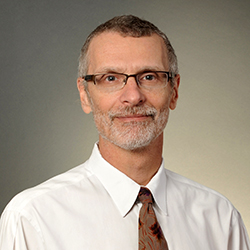
Through his research, David Gius, MD, PhD, professor in Radiation Oncology and Pharmacology, has developed tools such as mouse models and reagents to explore and detect sirtuins, a gene family whose loss has critical implications for aging, breast cancer and other diseases. He applied some of these tools to a recent collaboration led by Mahesh Gupta, PhD, of the University of Chicago, which identified a natural compound that activates the sirtuin protein SIRT3 in cells and animals.
In the study, published in Nature Communications, the scientists show that Honokiol (HKL), a compound derived from the bark of magnolia trees, reestablishes the activity of SIRT3 to improve cardiac hypertrophy, a thickening of the heart muscle often caused by high blood pressure. In ongoing research, Dr. Gius is investigating the same agent in breast cancer tumor models.
“The bottom line is that HKL binds to SIRT3, and turns it back on if it’s decreased or the gene is deleted,” he said.
In the study, increasing SIRT3 in the heart with HKL resulted in blockage of the cardiac hypertrophic response. Likewise, ameliorating SIRT3 deficiency in tumors could help patients with breast cancer who become resistant to first-line therapies.
“Eventually, this is one of two agents we want to move forward into the clinic,” Dr. Gius said. “If our antibodies show that a patient sample has a loss of SIRT3 signature, and that patient has had a recurrence, we’d like to start adding HKL to treatment to see if it will make the tumor go away.”
Dr. Gius was recently named vice chair for translational research in the Department of Radiation Oncology. He is also a member of the Robert H. Lurie Comprehensive Cancer Center of Northwestern University.
The new study was supported by National Institutes of Health RO1 grants HL83423, HL117041, HL111455 and AR47901, the Rabinowitch-Davis Foundation and the Margolis Foundation. Dr. Gius provided the antibodies for reagents and assays to determine SIRT3.






